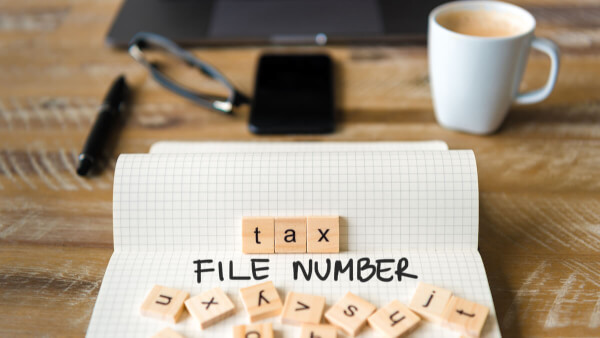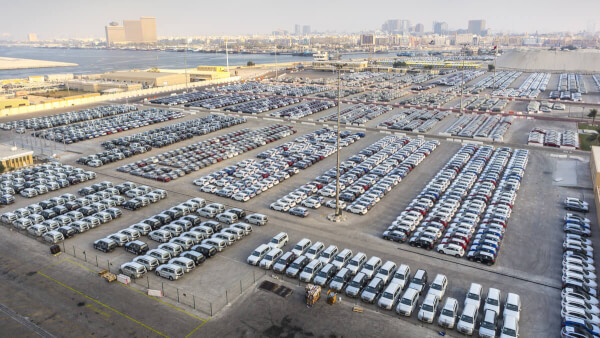Cost of living in Melbourne. What you need to know before the move
Looking to move to Melbourne and want to know the various costs of living? Here’s what it costs to live in Melbourne.

If you’re a Japanese expat looking to move to the Sydney area, you may be interested in looking for a Japanese school for your children. You may be keen for your kids to learn the Japanese curriculum or ensure that they have influence from Japanese culture.
With 95,000 Japanese residents living in Australia as of October 2022, it’s understandable why there’s a need for Japanese schools, and there are now many Japanese international schools that are accepting students in the Sydney area.¹
In this article, we’ll provide you with everything you need to know about Japanese international schools in Sydney, including life and education in Australia, the benefits of enrolling your children in Japanese international schools, and details on the main Japanese school in Sydney.
| 💸 Hold over 40 currencies in your account and spend at the mid-market exchange rate with the Wise Debit card while abroad. |
|---|
Learn more about the
Wise Account and card
Moving to Sydney as a Japanese expat may seem daunting, but there are plenty of things to see and enjoy. Sydney has a rich arts scene with museums, art galleries, and theatres to keep you busy, as well as the Sydney Opera House.
If you’re an expat that loves the sun, you’ll be pleased to know that Australia has an average daytime maximum temperature of 24.3℃, which is warmer than Japan’s average daytime maximum temperature of 19.2℃.²
Sydney offers a great sense of community to locals and expats alike and has excellent transport options including ferries, trains, and buses to get you to work and your new favourite places. It’s also considered to be very safe, with a generally low crime index of 34.28 (between 20 - 40 is considered low).³
The education system in Australia is separated into Early childhood education (ages 4-5), Primary school education (ages 6-11), Secondary school education (ages 12-18), and then higher education/tertiary education which includes all official education after secondary school.⁴
Children attending Australian schools adhere to a national curriculum where they’ll learn a range of subjects such as mathematics, science, languages, and health.⁴
In Japan, the education system begins with Primary education from ages 6-11, Secondary education from ages 12-17, and then higher education from ages 18-22.⁵
Schools follow a national curriculum and encourage students to maintain the classrooms at the end of the school day before enjoying a cultural or sports club activity.⁵
There are many advantages of enrolling your children in Japanese international schools in Sydney, here are a few key benefits⁶:
Japanese schools in Sydney generally offer two curriculums, which have been explained in further detail below.
The International Division teaches the Australian curriculum (NSW) in primary education, from kindergarten to year 6. Lessons are taught in English with daily Japanese language lessons.⁶
Children will learn a range of skills including reading, writing, and speaking, plus insight into Japanese culture.⁶
The Japanese Division teaches the curriculum taught in Japan delivered by the Japanese Ministry of Education (MEXT) from years 1 - 9. Lessons are taught in Japanese, with daily English lessons.⁶
This gives children access to experienced Japanese curriculum experts within Australia, while also bringing them together with those taught the Australian curriculum to learn subjects such as art, music, PE, and coding which are not restricted by a language barrier.⁶
International schools in Sydney generally welcome students from all nationalities and backgrounds. By offering both Australian and Japanese curriculums, all children can learn at international schools and have the opportunity to learn a second language.⁶
Sydney is home to The Sydney Japanese International School, some information on this school is detailed below:
| Name of school | The Sydney Japanese International School (SJIS) |
|---|---|
| Location | 112 Booralie Road, Terrey Hills, NSW 2084, Australia |
| Ages catered to | Kindergarten - Year 9 |
| Curriculum followed | The school is divided between Australian Curriculum and Japanese Curriculum. Students in years 1-9 have the opportunity to sit exams that are currently taken in Japan, as well as Australian exams.⁷ |
| Average school fees | School fees for the April 2023 - March 2024 school year are as follows⁸:
|
| Application requirements | International Division
|
| Contact information |
|
As seen on 26 June 2023
If you’re looking for an easy way to transfer money between Japan and Australia, look no further than Wise. Over 16 million people use our international money transfers for secure online money transfers.
The Wise Account and Debit Card are also available to make your life easier, with the ability to store money in over 40 currencies in one online account with the Wise Account, and the Wise Debit Card allowing you to spend this money in over 170 countries at the mid-market rate.
Join millions of customers currently enjoying Wise. It’ll only take a few minutes to register and see what’s inside.
Register your Wise account
in minutes 🚀
| Please see Terms of Use for your region or visit Wise Fees & Pricing for the most up-to-date pricing and fee information. |
|---|
Sources:
Sources checked on: 26/06/2023
*Please see terms of use and product availability for your region or visit Wise fees and pricing for the most up to date pricing and fee information.
This publication is provided for general information purposes and does not constitute legal, tax or other professional advice from Wise Payments Limited or its subsidiaries and its affiliates, and it is not intended as a substitute for obtaining advice from a financial advisor or any other professional.
We make no representations, warranties or guarantees, whether expressed or implied, that the content in the publication is accurate, complete or up to date.

Looking to move to Melbourne and want to know the various costs of living? Here’s what it costs to live in Melbourne.

Looking to move to Sydney and want to know the various costs of living? Here’s what it costs to live in Sydney.

If you’re an Australian citizen, or if you live and work in Australia as an expat, then you’ll likely want to get a tax file number (TFN). Having a TFN helps...

Looking for student job ideas you can do while you study in Australia, here are some for you as well as what you need to know to get started.

It’s no secret that Dubai is famous for promoting high-end lifestyles to tourists and locals alike. One element of this high-end lifestyle on show in excess...

For classic car enthusiasts and bargain hunters alike, buying and importing a car from America might be the best way to find a unique vehicle that is not...